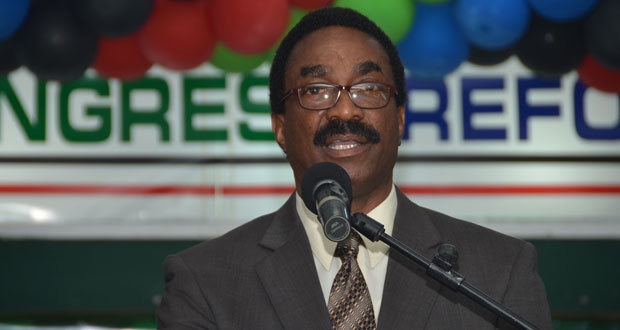
President’s Pension, Local Gov’t Bills high on 11th Parliament agenda – says new Attorney-General
NEWLY-appointed Attorney-General and Minister of Legal Affairs, Basil Williams, has said that the David Granger administration in the 11th Parliament will bring back legislation previously approved in the National Assembly that were not assented to by former President Donald Ramotar. Speaking to this publication at Tuesday’s inauguration of President David Granger, the AG said that the 11th Parliament would reconsider the Local Government Amendment Bills as well as the Former President’s Pension, Utility and Other Facilities Bill 2012, which was enacted by Former President Bharrat Jagdeo in 2009. Williams said this move will ensure the Government’s commitment to “re-erecting the pillars of democracy” as it took over from the People’s Progressive Party/Civic (PPP/C) administration, which lost the reins of power following their defeat at the May 11 polls. The Attorney General said there is a plethora of legislation to be addressed by the 11th Parliament, which also includes restoring the independence of the judiciary. The Granger administration in the 11th Parliament, which reportedly is to be convened in June, cannot enact major constitutional reforms without the support of the opposition People’s Progressive Party/Civic. “What legislation could be changed, we will change,” AG Williams said, adding that “the question of major constitutional reform…would require two thirds majority.” “We would have to enlist the cooperation of the Opposition,” he further clarified. Following the 2011 general and regional elections, the A Partnership for National Unity (APNU), and the Alliance For Change (AFC) held a combined majority of 33 seats in the National Assembly. That was the first time in Guyana’s history that a Government had held a minority of 32 seats in the National Assembly. As it relates to enacting legislation, Article 164 of the Guyana Constitution states that no bill passed by the National Assembly will become law unless it is approved by the President. With a one-seat majority in the soon-to-be convened 11th Parliament, the Granger administration would be able to legally approve legislation with a simple majority of 33 seats. In the 10th Parliament, former Prime Minister and Minister of Parliamentary Affairs in the Ramotar administration, Samuel Hinds said in 2012 the amendments to the President’s pension, which included an alleged monthly payment of US$15,000, as well as an unlimited supply of staff, were based on a vendetta by the then APNU/AFC combined Opposition in the National Assembly. As it relates to Local Government amendment legislation, former President Ramotar had given assent to three of the four bills placed before him by the APNU/AFC -controlled Parliament between 2011 and 2014. Those assented were the Fiscal Transfers Bill 2012, Municipal and District Councils Bill, and the Local Government Commission Bill. Ramotar however had withheld his assent for the Local Government (Amendment) Bill which would have stripped the Minister of Local Government and Regional Development of his powers over local government authorities in Guyana’s six municipalities, and 65 Neighbourhood Democratic Councils (NDCs). That power would’ve been re-directed to sitting members of the Local Government Commission.
(By Derwayne Wills)
